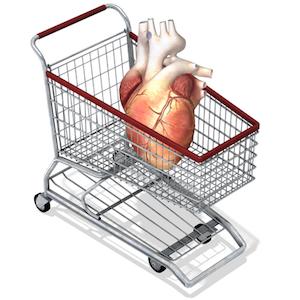The word "trafficking" does not conjure up pleasant imagery. Human trafficking, drug trafficking, gun trafficking. These are immoral and destructive behaviors. But what about organ trafficking?
According to Catholic News Agency, at the end of a Vatican conference precisely on this topic, participants declared organ trafficking a "crime against humanity." They make a powerful and emotionally persuasive case:
In general, migrants, refugees and the poor are among the most vulnerable populations for organ trafficking, because they may be forced to sell organs if they do not have the cash to pay when soliciting help for transportation by people-smugglers to more stable countries.
And then:
[The Pope] was particularly concerned... by the reports of the large number of migrants and refugees who are coerced into donating kidneys in order to pay for their journeys to freedom or to a more dignified life.
Indeed, that is rather despicable. Taking advantage of vulnerable people is, in a word, evil. Desperation can force people to make drastic, life-altering decisions, and they should not be exploited.
But what if somebody wants to sell an organ, not out of desperation but simply because he wants to? Perhaps selling an organ would help him pay off college debts or place a down payment on a home. If it is ethical to donate an organ to somebody in need, why isn't it ethical to sell an organ to somebody in need? After all, organ trafficking exists precisely because not enough people are donating their organs. Could the free market play a role in fixing this problem?
Yes. In 2011, an article making the case was published in The Atlantic. It begins with a stark and sobering fact: "There are only about 20,000 kidneys every year for the approximately 80,000 patients on the waiting list. In 2008, nearly 5,000 died waiting." But who doesn't have a waiting list? Iran, that paragon of democracy and free market thinking. The author writes:
Almost every other country has prohibitions like America's. In Iran, however, selling one's kidney for profit is legal. There are no patients anguishing on the waiting list. The Iranians have solved their kidney shortage by legalizing sales.
This is an equally powerful and logically persuasive case for the legalization of organ sales. Yet, it is not likely to occur in the United States anytime soon.
Certainly, conservatives will argue that the body is sacred, and it should not be "put up for sale to the highest bidder." But what about the body of the person in need of an organ? Is his body not sacred, too? Liberals will argue that organ sales would benefit the rich (who would buy the organs) at the expense of the poor (who would sell their organs). That's probably true, but as the author of The Atlantic piece notes, that's already the case in the illegal organ trade.
Though Americans probably will be too repulsed by the idea of legalizing organ sales, it is a debate worth having. Every day, on average, roughly a dozen Americans die waiting for a kidney.




